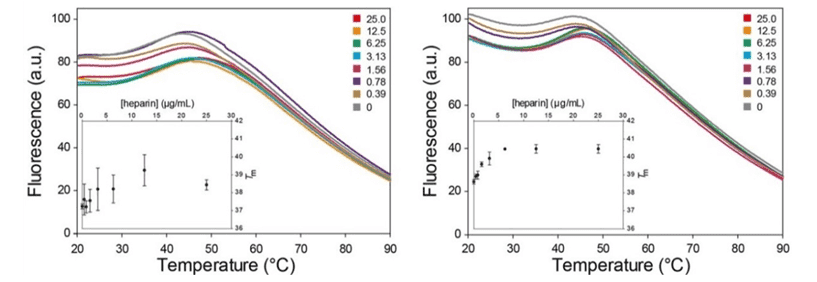With years of experience in antibody discovery and development, Creative Biolabs is proud to offer custom-built thermal stability measurement services for bispecific antibodies (BsAbs). Beads on the advanced antibody analysis platform, we are dedicated to providing first-class thermal stability measurement services to support your projects in a timely and cost-effective manner. We mainly provide two popular techniques for thermal stability measurement: Differential Scanning Calorimetry (DSC) and Differential Scanning Fluorimetry (DSF).
Differential Scanning Calorimetry (DSC)
Calorimetry is a major technique used to determine the thermal properties of materials and to set up a connection between temperature and specific physical properties of substances. It is extensively used in biochemistry, pharmacology, and cell biology to study the thermodynamic properties of biomolecules. DSC is one of the many popular calorimeters, which is named as a single molecular transition of a molecule from one conformation to another. This technique uses a thermal analysis apparatus to determine how physical properties of a sample change, with the variation of temperature against time. With the change in temperature, DSC detects a heat quantity, which is absorbed or radiated by the sample in the light of a temperature difference between the sample and the reference material. Thermal transition temperatures of the samples can be measured in solid, solution, as well as mixed phases.

Fig. 1 The schematic set up of Differential Scanning Calorimetry (DSC) (Steinmann, W., et al, 2013).
Differential Scanning Fluorimetry (DSF)
DSF, also known as Thermofluor, makes use of the high thermal control, sensitivity, and expanded availability of RT-PCR machines to determine protein thermal stability. It is a useful approach to measure low-molecular-weight ligands that bind and stabilize purified proteins. Moreover, DSF has been used to solve various biochemical problems, such as optimization of stabilizers for protein crystallography, measurement of relative thermal stabilities between protein variants, as well as high-throughput screening for small molecule inhibitors. In a typical DSF test, the temperature at which a protein unfolds is determined by an addition in the fluorescence of a dye with affinity for hydrophobic parts of the protein, which are exposed as the protein unfolds. A simple fitting procedure allows quick calculation of the transition midpoint. And the imparity in the temperature of this midpoint in the presence and absence of ligand is connected with the binding affinity of the small molecule, which may be a peptide, a nucleic acid or a low-molecular-weight compound.

Figure 2. An example of protein measurement by DSF (Myrum, C. 2015).
With our well-established BsAbs analysis platform, the experienced scientists at Creative Biolabs are dedicated to helping you develop BsAbs using DSC and DSF. Our high quality thermal stability measurement services will greatly contribute to the successes of your projects. Creative Biolabs also provides other various services regarding BsAbs development. Please feel free to contact us for more information and a detailed quote.
References
1. Myrum, Craig, et al. "Arc is a flexible modular protein capable of reversible self-oligomerization." Biochemical Journal 468.1 (2015): 145-158. Distributed under open access license CC BY 3.0, without modification.
2. Steinmann, W., et al. "Thermal analysis of phase transitions and crystallization in polymeric fibers." Applications of Calorimetry in a Wide Context-Differential Scanning Calorimetry, Isothermal Titration Calorimetry and Microcalorimetry (2013): 277-306. Distributed under open access license CC BY 3.0, without modification.
Our products and services are for research use only, and not for use in diagnostic or therapeutic procedures.
Welcome! For price inquiries, we will get back to you as soon as possible.
To order, please email
INQUIRY






